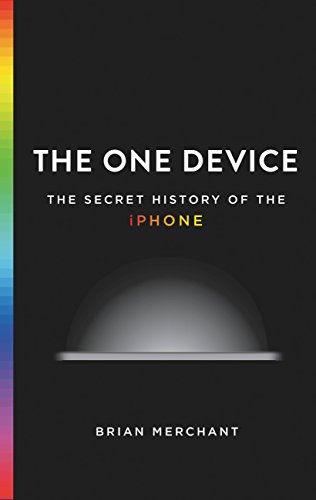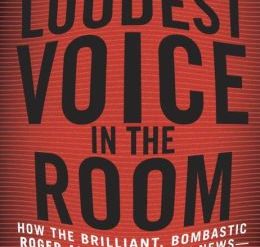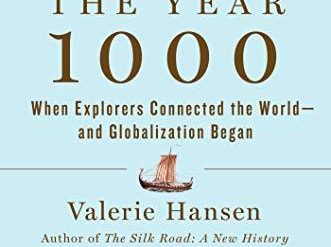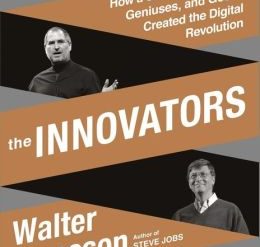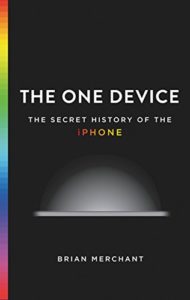
Other Silicon Valley observers have written about the development of the iPhone—but it’s unlikely that anyone else has delved as deeply into the subject as Brian Merchant . . . or will ever do so in the future, for that matter. Merchant’s brilliant new book, The One Device: The Secret History of the iPhone, tells the tale from the mining of the minerals from which the phone is crafted to the oppressive working conditions in Apple’s Chinese manufacturing plants and the scavengers at Third World dumps where discarded iPhones are sometimes now found. Those topics bookend the story, which largely consists of interviews with some of the hundreds of people who played a hand in the phone’s development. As a result, you may learn more than you will ever want to know about the world’s most profitable product.
Steve Jobs didn’t invent the iPhone
If you have the impression that Steve Jobs invented the iPhone and is largely responsible for its success, The One Device will quickly disabuse you of that misconception. Without question, Jobs was hugely influential in the project: his obsessive attention to detail, his passion for secrecy, and his genius at marketing all contributed in major ways to the ultimate runaway success of the product. However, not only was the iPhone not Jobs’ idea—he actively resisted pursuing the project for several years. (A team of key staff members worked in secret in defiance of his refusal to authorize the work. Their meetings began before the turn of the century. The first iPhone was released in June 2007.)
The One Device: The Secret History of the iPhone by Brian Merchant ★★★★★
Jobs’ insistence on secrecy contributed to the buzz that surrounded the phone in the months leading up to its release, but during the many years that Apple devoted to designing the iPhone, that same paranoid obsession with secrecy impeded the project’s progress by compartmentalizing the staff. “Of all the complaints about working at Apple . . .,” Merchant writes, “its secrecy was at the top of the list—engineers and designers found it set up unnecessary divisions between employees who might otherwise have collaborated.”
And Jobs’ notoriously volcanic temper and his sometimes abusive treatment of employees may have forced many of them to work longer and harder on the phone than otherwise would have been the case. But it’s difficult to believe that morale wouldn’t have suffered as a result—and I know from decades of experience as an employer that low morale takes a toll on productivity.
As Merchant makes clear, “The story of the iPhone starts . . . not with Steve Jobs or a grand plan to revolutionize phones, but with a misfit crew of software designers and hardware hackers tinkering with the next evolutionary step in human-computer symbiosis.” And a truly fascinating tale it is. Ultimately, hundreds of people, not just at Apple but at key suppliers such as Corning and Samsung as well, made key contributions to the success of the iPhone. Merchant does his best to identify them by name and interview them.
A century of antecedents
One of the strengths of Merchant’s account is the thoroughness with which he studied the history of technology. In doing so, for example, he learned that “[v]isions of iPhone-like devices can be traced back to the late 1800s.” A Finnish inventor “successfully file a patent for what appears to be the first truly mobile phone”—in 1917. And “[b]y 1994, Frank Canova had helped IBM not just invent but bring to market a smart-phone that anticipated most of the core functions of the iPhone.” Thirteen years before Apple’s product announcement!
The world’s most profitable product?
Merchant frequently refers to the iPhone as “the world’s most profitable product.” For one thing, it didn’t start out that way. Initial sales of the phone were disappointing. Jobs had steadfastly refused to let outside developers supply apps to run on the iPhone. Only when he relented at last and allowed the opening of the App Store did sales explode upwards—and explode they did. Certainly, the profits Apple realizes from the phone are now massive, and it accounts for two-thirds of the company’s revenue. Where else might Apple’s cash hoard of more than $250 billion have come from?
But is it the world’s most profitable product? That strikes me as hyperbole. Like other journalists, Merchant clearly fell prey to the fallacy that only huge corporations matter. Although Time lists the iPhone as #1 on its list, the magazine qualifies that claim with the statement that it is “one of the world’s most profitable products.” And Merchant’s extravagant use of language doesn’t stop with his assertion about the phone’s profitability. For example, “The iPhone might actually be the pinnacle product of all of capitalism to this point.” Later, he adds, “The iPhone isn’t just a tool; it’s the foundational instrument of modern life.” Really? As of last year, iPhone sales passed one billion units. But there are more than 7.4 billion people on the planet.
For related reading
This is one of the Best books about innovation reviewed here.
Like to read books about business? Check out My 10 favorite books about business history and 5 best books about Silicon Valley.
If you enjoy reading nonfiction in general, you might also enjoy:
- Science explained in 10 excellent popular books
- Great biographies I’ve reviewed: my 10 favorites
- Top 10 nonfiction books about politics
And you can always find my most popular reviews, and the most recent ones, on the Home Page.

